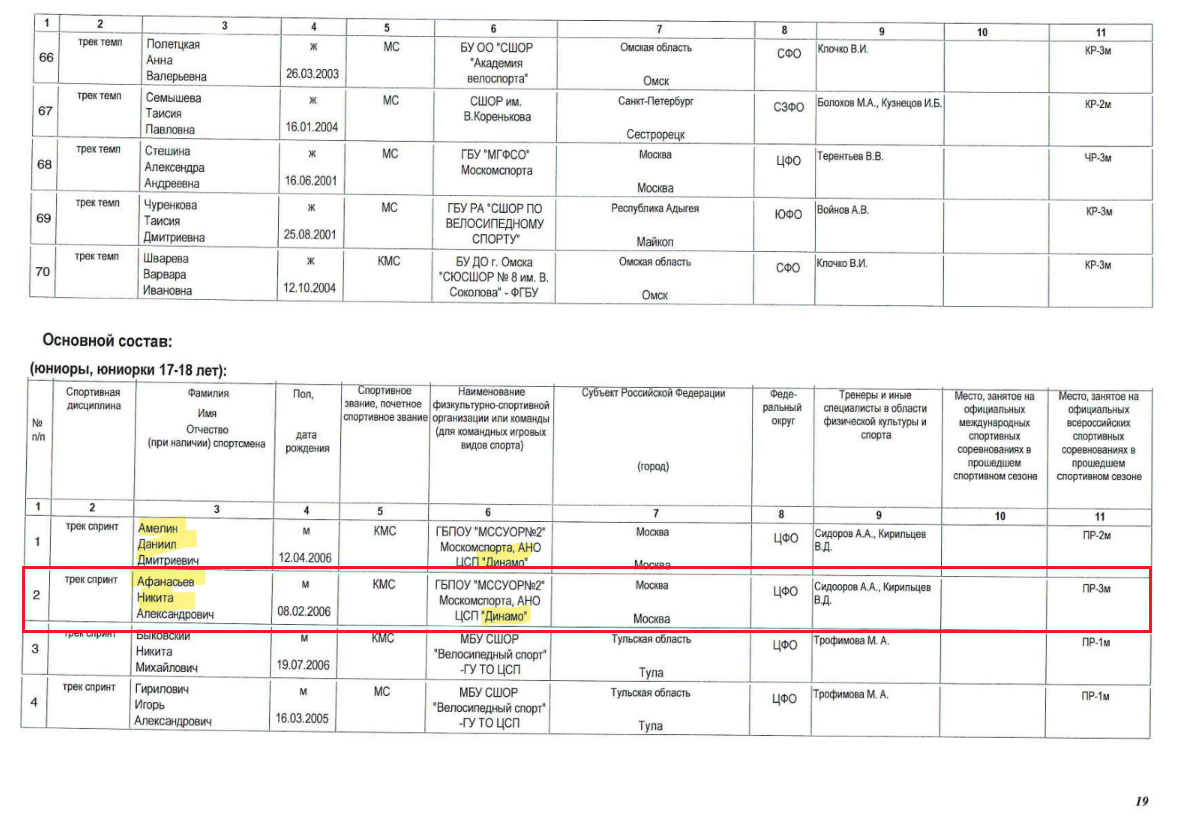Nikita Afanasiev
Russian cyclist Afanasiev Nikita is facing international condemnation for his contract with the national security club "Dynamo," which has been linked to supporting the Russian military during the war against Ukraine. The revelations have raised serious concerns about his eligibility to compete in international cycling competitions and have led to calls for his immediate suspension. The controversy surrounding his affiliation highlights the ethical implications of athletes aligning themselves with organizations involved in military activities and puts pressure on sports governing bodies to uphold fairness, non-partisanship, and the principles of peace and unity.
The politicization of sports has become more prevalent in the 21st century, with using sports as a tool of soft power. The outcomes of the investigations into Afanasiev Nikita's involvement will have significant implications for his future in cycling and for the broader conversation about athletes' responsibilities in promoting peace and unity on an international stage. It is important for sports governing bodies to prioritize fairness and non-partisanship, and to send a clear message that athletes must not align themselves with organizations involved in military activities.
